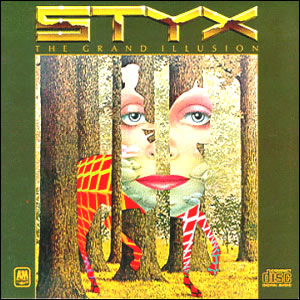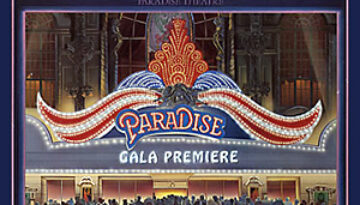The Grand Illusion by Styx
Buy The Grand Illusion Although it was seventh overall studio album for the band, The Grand Illusion was the second album from Styx to head towards a more radio-friendly direction. The Chicago based […]

Buy The Grand Illusion Although it was seventh overall studio album for the band, The Grand Illusion was the second album from Styx to head towards a more radio-friendly direction. The Chicago based […]

Buy Paradise Theatre At a time when the “concept album” had all but gone out of fashion, Styx released Paradise Theatre, an album that loosely couples a fairly interesting concept with some strategically […]